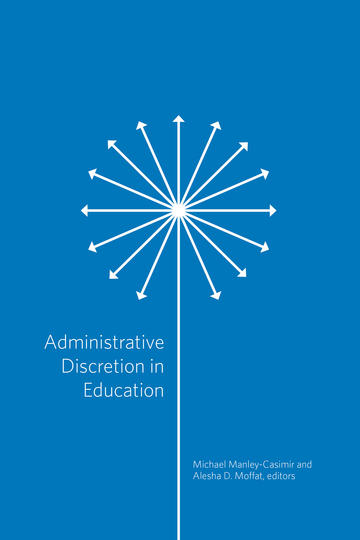Every day, discretion shapes the decisions that run our schools, colleges, and universities. Every day, it alters the lives and futures of students, educators, and administrators. It’s hard to overstate the impact of discretion on the incidents and issues that arise in every educational institution. Discretion affects disciplinary actions, school climate and safety, student engagement, and the health and well-being of everyone in a classroom or on a campus.
What is involved in the exercise of discretion by educational administrators? This collection of papers furthers research into this important question. It presents seminal work from scholars and graduate students, as well as path-breaking analyses from other disciplines. An understanding of how discretion works—the “calculus” that bridges the rational world of empirical observation and the normative world of ethics—can lead to better decision making in our educational institutions, and a clearer perspective on how to achieve just and effective outcomes.



